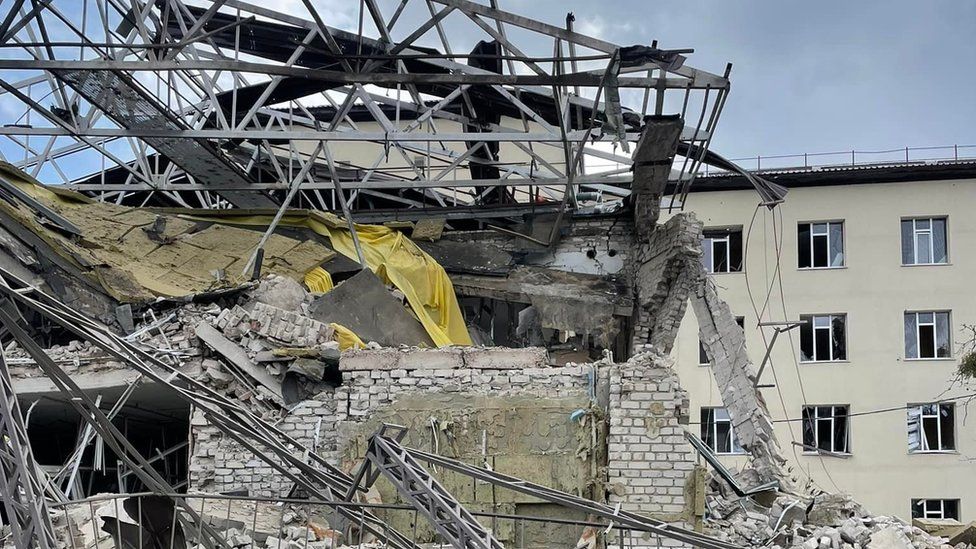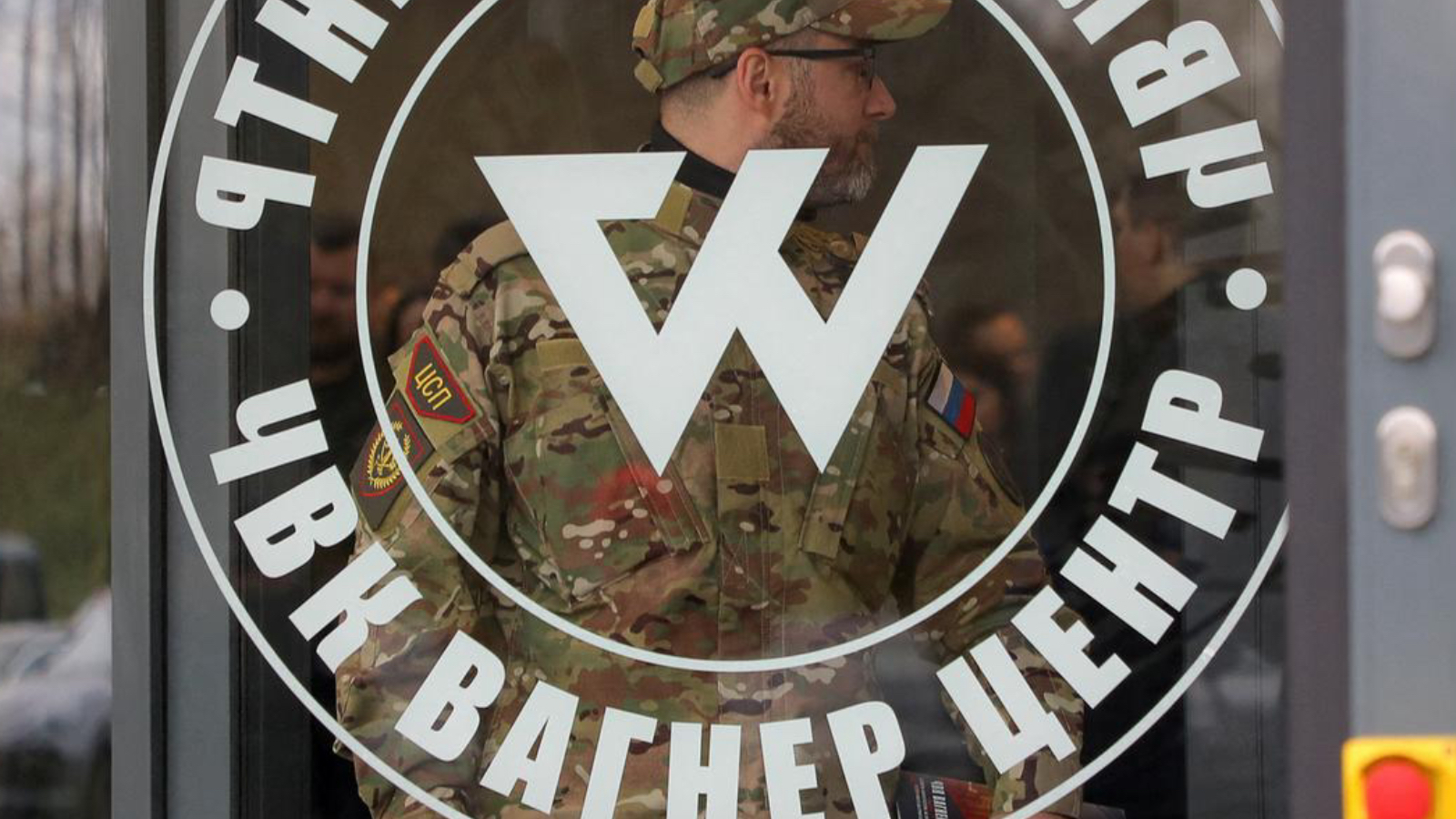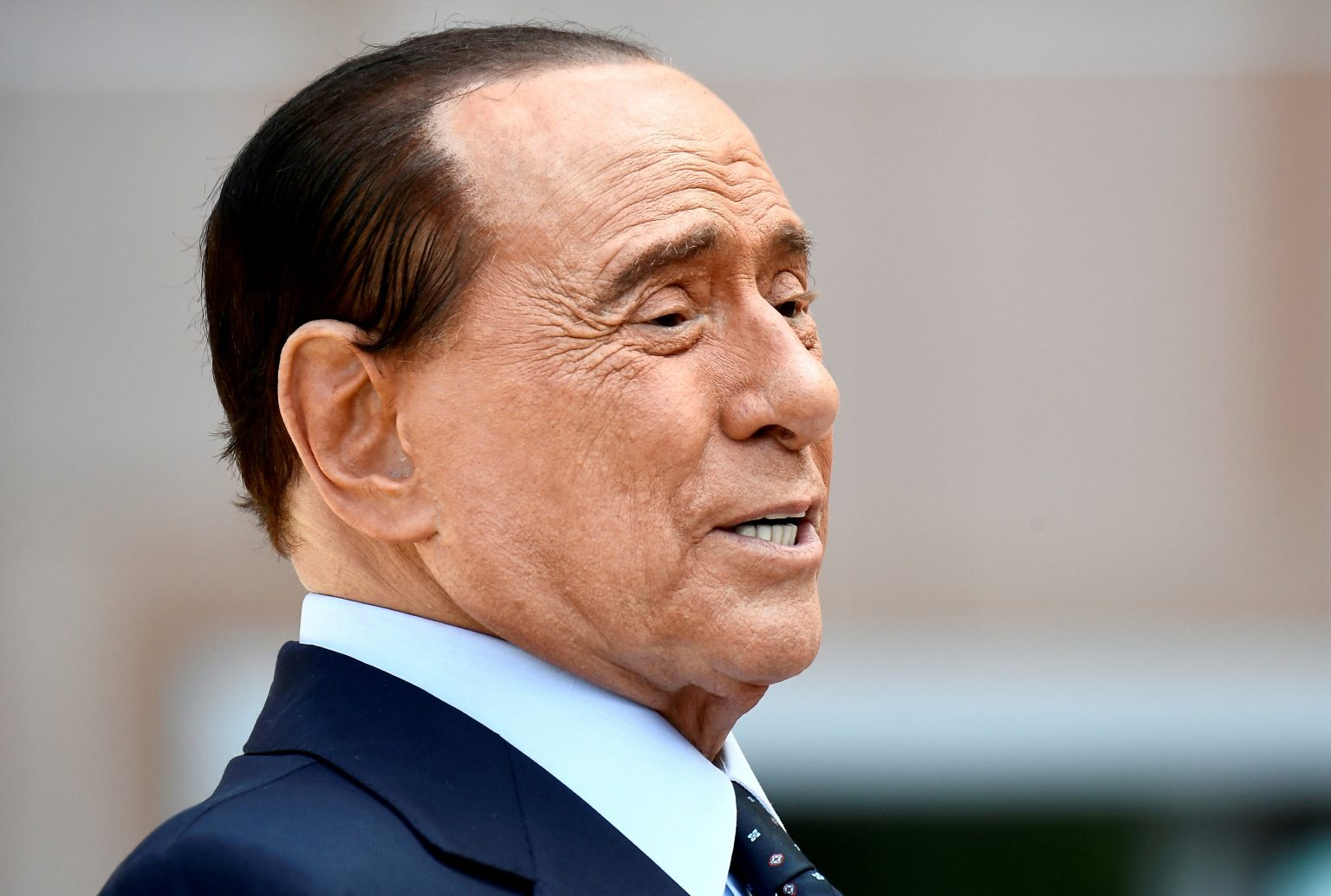World News
802 attacks on healthcare services during the Russia-Ukraine war
Published
2 years agoon
By
Berry Fox
Tedros Adhanom Ghebreyesus, Director-General of the World Health Organization (WHO), said, “(Russia-Ukraine war) Since the conflict began, WHO has confirmed 802 attacks on healthcare services.
These attacks resulted in the death of 101 healthcare workers and patients.” said.
Tedros Adhanom Ghebreyesus, Director-General of the World Health Organization (WHO), said, “(Russia-Ukraine war) Since the conflict began, WHO has confirmed 802 attacks on health services. These attacks resulted in the death of 101 healthcare workers and patients.” said.
Ghebreyesus made evaluations at the press conference held every week.
Reminding that after the Kahramanmaraş-centered earthquakes, the search and rescue efforts in Turkey and Syria came to an end, but there were two more earthquakes in Turkey on February 20, Ghebreyesus said that these brought pain to the region.
Mentioning that the new earthquakes were less severe than the earthquakes on February 6, Ghebreyesus stated that despite this, they caused death and injuries.
Ghebreyesus said, “Currently, the total number of people who lost their lives (in Turkey-based earthquakes) is over 47 thousand, and 125 thousand people were injured. At least 15 hospitals were damaged in Turkey and many healthcare facilities were affected. In Syria, hospitals and 145 health facilities were damaged. 26 million people were affected by the earthquakes. WHO has launched an emergency call for $84.5 million to support emergency health response efforts in both countries.” he said.
Reminding that as of this week, one year has passed since “Russia’s invasion of Ukraine”, Ghebreyesus mentioned that the Russia-Ukraine war had devastating consequences for health.
“WHO REACHED 3 THOUSAND TONS OF MEDICAL MATERIALS”
“Since the conflict began, WHO has confirmed 802 attacks on healthcare. These attacks resulted in the death of 101 healthcare workers and patients.” used the phrases.
Emphasizing that the war increased health needs, including mental health and psychological support, Ghebreyesus underlined that the disruptions to be experienced will pose a health hazard in the future.
“WHO is working closely with its partners in Ukraine, and the number of people it has responded to has reached 8.4 million. Since the start of the war, WHO has delivered a total of approximately 3,000 tons of medical supplies to Ukraine, including ambulances, generators, medicines for chronic patients, and trauma and emergency surgical supplies. WHO has called for $240 million in aid to support our work and reach 11.4 million people in Ukraine and refugee-receiving countries.” said.
“THIS VIRUS SHOULD NOT BE UNDERSTOOD”
Stating that a new study on Kovid-19 points to the importance of evidence on vaccination and reminder doses, Ghebreyesus pointed out that in addition to significantly reducing the risk of serious illness and death, vaccination also reduces the likelihood of Kovid-19 patients having a heart attack or stroke.
Ghebreyesus stated that these findings are important for countries to continue vaccination studies on the virus, especially for those at risk.
Noting that WHO’s Technical Advisory Group on Covid-19 Vaccine Composition met this week, Ghebreyesus noted that the group emphasized the need for ongoing surveillance to guide the composition of vaccines and evaluate their efficacy.
“While the world overall is in a better position than it was three years ago, this virus should not be taken lightly,” said Ghebreyesus, pointing to the importance of investing in research to develop vaccines that can provide broader protection and reduce transmission.

World News
Protests grow after police kill 17-year-old in France: At least 150 people were detained
Published
1 year agoon
29/06/2023By
Berry Fox
The demonstrations that started on Tuesday after a 17-year-old teenager was killed in Paris, the capital of France, after he did not comply with the stop warning of the traffic police, continued yesterday.
Clashes broke out between the police and the demonstrators in Paris, at least 150 people were detained. The demonstrations spread to other cities as well.
The most intense clashes took place in Nanterre, a suburb to the west of Paris, where the teenager, identified as Nahel M, was killed.
Demonstrators threw Molotov cocktails at the police in Nanterre and burned down an electrical installation. The newspaper Le Monde reported that the police had to partially withdraw from Nanterre.
In the videos circulating on social media, it is seen that vehicles are burned and shops are looted.
Molotov cocktails were thrown at many police stations in Paris.
Skip the headline and continue reading
World News
Luxembourgers will soon be able to legally keep and smoke weed
Published
1 year agoon
28/06/2023By
Berry Fox
Luxembourgers of age will soon be allowed to keep a maximum of four cannabis plants at home for their own use. They may also smoke the ‘harvest’ thereof. Weed is prohibited in public.
It took the Luxembourg parliament five years to reach this agreement. It is a watered-down version of a plan to fully legalize marijuana.
The partial legalization is part of a package of measures. With this, the Luxembourg government wants to reduce drug crime in the country.
Among other things, the government wants to develop state-controlled supply chains and control cannabis sales.
Justice Secretary Sam Tanson said the drug policy of the past fifty years was a “failure”. Although weed was banned, it was widely used.
Public use and possession remain prohibited
The use and possession of marijuana in public remains prohibited. However, the fine will be reduced to 25 to 500 euros for possession of less than 3 grams. Anyone who carries more weed on the street risks six months in prison or a fine of 2,500 euros.
The government hopes that the new rules will prevent drug trafficking and protect Luxembourgers from contaminated weed. According to opponents, the illegal trade will continue and will not limit consumption.
World News
UBS to lay off thousands of Credit Suisse employees
Published
1 year agoon
28/06/2023By
Berry Fox
Switzerland’s largest bank, UBS, is preparing to fire thousands of employees of the bank it bought after completing its state-aided takeover of rival Credit Suisse.
Swiss banking giant UBS is preparing for layoffs after taking over Credit Suisse. The giant bank will dismiss more than half of the employees at Credit Suisse, which has 45,000 personnel, next month.
The segments that will be most affected by the wave of layoffs will be bankers, processors and support personnel. Employees of Credit Suisse branches in London, New York and some Asian regions will be the ones most affected by this wave.
THERE WILL BE 3 SEPARATE WAVE OF WORK
There will be three separate waves of layoffs this year, according to sources who asked for anonymity as the plans have not yet been made public. It is stated that the first wave is expected to take place by the end of July, while the other two tours are planned in September and October.
Three months after UBS bought Credit Suisse in a government-brokered bailout, the full extent of the layoffs began to become clear.
When the deal was completed, UBS’ total headcount rose to nearly 120,000, and the company said it aims to save about $6 billion in personnel costs in the coming years.
IT WILL FIND 35 THOUSAND PEOPLE
It is thought that UBS plans to eventually cut its total headcount by around 35,000 people. UBS spokespersons are refusing to comment on the layoffs for now.
After the Wall Street investment banks, including Morgan Stanley and Goldman Sachs, announced that they would lay off thousands of their staff, UBS also started to lay off their staff, showing that things are getting worse for the global financial sector.
WHAT HAPPENED?
After the banking crisis that started in the USA in March, there was a Credit Suisse panic in Europe. The developments after the Saudi National Bank, the biggest partner of Credit Suisse bank, announced that it would not increase its capital, dragged the bank to the brink of bankruptcy.
Switzerland’s largest bank, UBS, bought 167-year-old Credit Suisse for 3 billion francs, with the government’s liquidity support of 200 billion francs.
While the total number of employees of UBS and Credit Suisse reached 120,000 worldwide, UBS announced that it would make layoffs to reduce costs.

After the death of a 17-year-old teenager by police fire in France, many vehicles were set on fire, and many people were detained in the incidents.
In the city of Nanterre, France, 13 people were detained in the events that started with the death of the 17-year-old driver yesterday as a result of the fire opened by the police.
Those who reacted to the incident took to the streets in different cities such as Nanterre, Suresnes and Mantes-la-Jolie and set garbage bins and vehicles on fire. While the firefighters were responding to the fires, a brawl broke out between the youth and the police in different neighborhoods of the city.
A fire broke out in the town hall and a school, and a total of 13 people were detained.
REACTION FROM POLITICIANS
Police opened fire on a vehicle in Nanterre, which had 3 people and did not comply with the “stop” warning, and the 17-year-old driver died. While one child in the vehicle was taken into custody, the other child fled the scene and an investigation was launched into the incident.
While the French politicians were reacting to the incident, in the images reflected on social media, it is seen that the police who opened fire were not in front of the vehicle, but at the level of the front left seat.
In the footage, it is evaluated that the vehicle hit the pole after the police fired the gun pointed at the driver.
World News
2 people died in Spain due to hot weather
Published
1 year agoon
28/06/2023By
Berry Fox
The first extreme heatwave of summer in Spain killed two people.
A 47-year-old farmer in Seville on 24 June and a 46-year-old farmer in Ciudad Real on 26 June died from extreme heat while working in the field, according to information from the civil aid organization and local governments.
Stating that the heat especially affects the farmers and construction workers working in the open field, the authorities demanded that measures such as drinking plenty of water, using a hat and not staying in the open area during the peak hours of the sun.
ALARM IS GIVEN
Due to the first extreme heat wave of summer, which started last weekend and is expected to leave the country from tomorrow, 8 of 17 autonomous administrations in Spain were given a 1st or 2nd degree alarm.
According to the meteorological forecasts, the air temperatures in the Andalusia region in the south of the country will decrease to 30-38 degrees from tomorrow.
On the other hand, the Public Health Agency in Spain announced that a total of 10 extreme heat waves were seen in the summer of 2022 and the hottest summer of the last 30 years was detected. In the data, it was shared that 10 people died from extreme heat in 2022 and that heat had an indirect effect on 337 deaths.

Coup attempt in Russia: Wagner, the mercenary group condoned by Putin, rebelled against the Russian army!
The Federal Security Agency asked the Wagner fighters to arrest their leader, Prigojin.
Yevgeni Prigojin, the founder and leader of the Russian mercenary group Wagner, claimed that he ordered the leaders of the Russian army to strike the group’s camps and killed a large number of Wagner warriors.
Wagner’s leader, who has been making statements against the Russian Ministry of Defense for months, made an unorthodox statement against the leaders of the Russian army, saying he would “stop” them and asked Russian citizens to remain calm.
“Putin is aware of developments”
Kremlin Spokesperson Dmitri Peskov said that Russian President Vladimir Putin is “aware of the developments” and emphasized that “all necessary measures will be taken”.
According to Russia’s public broadcaster RIA Novosti, the Federal Security Agency has launched a criminal investigation for starting an armed uprising. Agency asks Wagner fighters to arrest their leader Prigojin
“The evil brought by the army of this country must be stopped”
“We were ready to make concessions to the Ministry of Defense, we were going to lay down our weapons. Today we see that the promises made have been broken. They launched missile attacks on our camps,” Prigojin said in the audio recording released by his spokespersons.
Prigojin said, “Wagner’s council of commanders has made a decision. The evil brought by the army of this country must be stopped” and called on the Russians “not to resist them”. “We’re 25,000 people, and we’re going to take a look at why there is total lawlessness in this country,” said the Wagner leader.
“Prigojin’s statements do not match reality”
“We are not carrying out a coup,” said Prigojin. “We are marching for justice. Our moves do not endanger ordinary Russian soldiers.”
“Prigojin’s statements do not match reality,” said the Russian Defense Ministry.
According to Vyorsyka’s report, Wagner members called their relatives on Friday and said goodbye to them before Prigojin’s statements.
“Coup Attempt in Russia”
T24 writer Hakan Aksay evaluated the developments with his social media account. Describing the tension as a “coup attempt in Russia”, Aksay announced that an investigation was launched. Aksay included the following statements in his message:
“The coup attempt in Russia. Prigojin, the owner of the mercenary Wagner units, which Putin allowed to develop and gain strength with dubious methods, announced that he took action with 25 thousand armed youth not only against the Minister of Defense Shoigu, but also “against the turmoil in the country.”
Kremlin spokesman Peskov said that President Putin is aware of everything and that necessary measures will be taken. The Russian intelligence agency FSB launched an investigation into Prigojin’s statement on the allegation of “coup attempt.”

Streaming service Netflix is now opening a restaurant, too.
Netflix is opening a restaurant. The chefs in the cooking shows will cook.
Netflix is also stepping into the food industry after digital broadcasting and mobile gaming.
The company announced two days ago, Netflix Bites, to open its restaurant in Los Angeles, USA. At the restaurant, the Chef’s Table on the platform, Nailed It! and Iron Chef: Quest for an Iron Legend (Iron Chef: Quest for an Iron Legend), will present their dishes to customers.
Chefs include Curtis Stone, Dominique Crenn, Ming Tsai, Andrew Zimmern, Rodney Scott, Ann Kim and Jacques Tortres. Mixologists such as Frankie Solarik and Julie Reiner on the Cocktails are Our Business (Drink Masters) program will also showcase their drinks at the restaurant.
This temporary restaurant, which will open on June 30, will host its guests for two weeks.
Netflix’s statement said it would provide “fans and gourmets with a restaurant experience like no other.” Josh Simon, Vice President of Consumer Products at Netflix, said:
“With Netflix Bites, we’re creating a face-to-face experience where fans can immerse themselves in their favorite cooking shows. We’re excited to collaborate with these exceptional chefs who will bring that vision to life and showcase their delicious menus.”
Reservations for the restaurant can be made online.
World News
There will be a fee to enter the New York city center by car
Published
1 year agoon
13/06/2023By
Berry Fox
There will be a fee to enter the New York city center by car. In order to reduce traffic congestion in New York City, USA, it was decided to charge a vehicle entry fee to the Lower Manhattan area.
It is on the agenda to collect money from those who enter the busy Manhattan area of New York with their vehicles.
According to the news reported by CNN, the administration of US President Joe Biden has approved the program that will charge vehicles entering the Lower Manhattan area of New York City.
If the app goes live, it will work like any road toll. However, it will be a first in the United States, as there will be a special charge for driving in the high-traffic area below 60th Street in Manhattan.
WHO WANTS TO ENTER THE REGION WILL PAY 9-23 DOLLARS
According to the proposals, charges will be made from $ 9 to $ 23 during peak hours. The application will go into effect next spring.
Although the plan was discussed for years, it was delayed each time. But last month, the Federal Highway Administration took the first step by approving the publication of the environmental assessment on the subject. “This program is critical to the long-term success of New York City,” New York Governor Kathy Hochul said last month.
ONE OF THE WORLD’S WORST TRAFFIC
Every day, 700,000 cars, taxis and trucks flock to Lower Manhattan, one of the busiest areas in the world. Lower Manhattan is known as one of the most congested traffic areas in the United States.
Since the traffic is very crowded, cars can only travel at a speed of 12.1 km per hour here. Bus speeds have dropped 28 percent since 2010, while New Yorkers lose an average of 117 hours each year in traffic.
It is planned to reduce the number of vehicles entering the congested area by at least 10 percent, if a toll is charged. It is thought that the application will increase public transportation.
Similar systems are currently being implemented in 7 cities in Europe. This system has already been implemented in London and Durham (England), Stockholm and Gothenburg (Sweden), Milan (Italy), Znaym (Czech) and Valletta (Malta).
CRITICAL APPLICATION
On the other hand, there are also criticisms of the system. Commuters from New York City’s outer boroughs and New Jersey say the program will hurt drivers who have no viable means of getting to Manhattan other than by car, and it will disproportionately affect low-income drivers.
In addition, opponents of the application are of the opinion that traffic in Manhattan could be diverted to low-income areas of the city such as the Bronx.
World News
Berlusconi, former prime minister of Italy, passed away
Published
1 year agoon
12/06/2023By
Berry Fox
Famous businessman Silvio Berlusconi, who was the prime minister of Italy for many years, passed away.
Silvio Berlusconi, one of the former prime ministers of Italy, who has been struggling with health problems for a while and entered politics after building one of the country’s largest media empires, has passed away.
It has been announced that the billionaire businessman who steered Italian politics and led four governments from 1994 to 2011 died in San Raffaele Hospital in Milan.
Berlusconi, who allegedly had sexual intercourse with young women in a villa in 2010 and made orgies known as “bunga bunga”, had a very difficult time. It was claimed that Berlusconi had an affair with Moroccan Karima al-Mahroug.
Berlusconi, who continued his political life despite the corruption and sex scandals about him, was 86 years old.
HE WAS INVOLVED IN THE COALITION GOVERNMENT
Berlusconi, who was diagnosed with cancer, was hospitalized in April due to a lung infection and was treated in the hospital for a long time.
Berlusconi, who is the head of the centre-right party Forza Italia, of which he is the founder, found himself in the coalition government of Prime Minister Giorgia Meloni in the elections held in September. Berlusconi was also in the Italian Senate.
Berlusconi, the owner of the Italian football club AC Milan, had a hard time with sex scandals, also known as “Bunga bunga”, in the early 2010s.

F-16 warplanes caused panic in Washington, the capital of the USA. The sound of a huge explosion heard in Washington caused panic.
In the social media posts, it was stated that around 15:30 local time, a big noise similar to the sound of a sonic explosion was heard. While it was recorded that shaking was felt in the houses due to the explosion, some social media users commented that the explosion may be related to a possible military exercise.
It was recorded that the police asked the Federal Aviation Administration (FAA) about the incident after citizens called the emergency lines, and the US Department of Homeland Security tweeted, “We are aware of the explosion sound heard in the capital, there is no threat at the moment.” expression was used.
Later, on the social media account of the Annapolis Emergency Management Office, it was shared that the explosion was caused by an “authorized flight under the Ministry of Defense” and that the military plane exceeding the sound limit caused the sonic boom.
In a written statement from the Federal Aviation Administration, it was reported that the Cessna-type plane, which took off from Tennessee to Long Island, entered the no-fly zone over the capital, then crashed into a mountainous terrain in the southwest region of Virginia.
A few hours after the plane crashed, the local police announced that the rescue team had reached the wreckage of the plane. In the statement, which stated that there were no survivors in the accident, according to the first determinations, it was noted that the investigations at the accident site were continuing.
In the US press, there was information that the plane in question did not respond to the radio warnings, and thereupon, the F-16s took off with the emergency response authority at supersonic speed, which caused the explosion of sound.
It was also stated that during the incident, military jets used flares that could be seen by the public in order to attract the attention of the pilot, and that the flares did not pose a danger to the people on the ground due to their rapid and completely extinguishing feature.
No information was shared about why the plane did not answer the calls, how many people were in it, and why it crashed.
White House officials announced that US President Joe Biden, who was playing golf at the Maryland military base, was informed during the incident.
It was noted that the FAA is continuing its investigation into the incident and will relay the details later.

Best Outdoor Activities in Amsterdam | Natural and Cultural Wonders

Major disruption in train services between Rotterdam and Den Haag until December

More than 800 film producers and actors in the Netherlands call for sanctions against Israel

Scientists warn: Ultra-processed food is as addictive as cigarettes

The price of a pack of cigarettes in Belgium will be 10 euros

There will also be an increase in the consumption tax on soft drinks in the Netherlands

Wanted murder suspect Bretty Dorder in the Netherlands was caught!

Fighting dog feces: Tracing feces with DNA

Ajax – Feyenoord: 0-4 (MATCH RESULT)

Armed attack in Rotterdam, Netherlands: 3 dead

Home Ownership Rate Declines in European Union Countries

Van Gogh’s stolen painting was found after 3.5 years

Pakistani cricketer who put a bounty on Geert Wilders’ head gets 12 years in prison

Fossil fuel protest in the Netherlands on the second day: 500 activists detained

Ajax-Feyenoord derby canceled due to incidents

Bicycles in Amsterdam: The Art of Commuting

Amsterdam’s Cycling Culture: A Lifestyle to Embrace

Amsterdam’s Bike-Friendly Neighborhoods

The Wheel Revolution: How Amsterdam’s Bicycles Reshaped the Cityscape

How to eat cheap food in Amsterdam?

Arts and Entertainment: Amsterdam Guide 2023

Heartbeat of Amsterdam: Exploring the Iconic Bicycles

How to Rent a Bike in Amsterdam

Billboards of OnlyFans model spark controversy in UK

Dutch Supreme Court: Israeli soldiers cannot be tried in our country

Amsterdam fine for loud car engines and exhausts

Verstappen equals F1 record

Exploring Amsterdam’s Best Laptop-Friendly Cafés for Digital Nomads

How Netherlands Emergency system works?

2 Russian warplanes approaching Dutch airspace intercepted

In another city in the Netherlands, a bacteria warning was issued in drinking water

Warning from TK Maxx in the Netherlands: Electric leakage in the adapters!

Rising rents in the Netherlands led citizens to Belgium

Children’s bicycle helmets are recalled for safety reasons in the Netherlands

Train tickets increase by 6.6 percent in the Netherlands

Mother and son missing for 2 months in the Netherlands still not found

The sweltering heat is coming in the Netherlands

‘Netherlands’ Stonehenge’ Discovered: 4000-Year-Old Graveyard and Glass Beads From Mesopotamia Found

Large cruise ships banned in Amsterdam seeking to reduce tourist numbers

